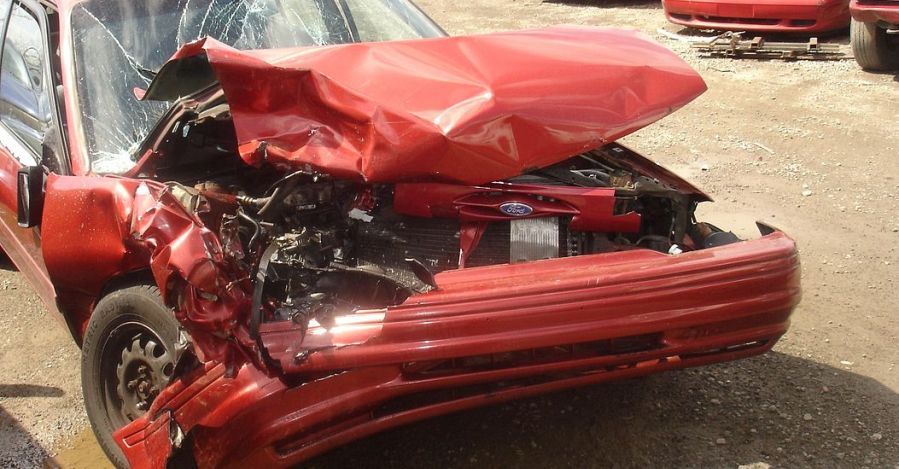The sudden, accidental loss of a family member is always deeply shocking and tragic and many survivors have no one to turn to after the unexpected loss of a loved one. If the fatality was an accident caused by the negligence of another person or persons, agood wrongful death attorney can offer the family comprehensive legal resources and seasoned, experienced legal advice. A wrongful loss lawsuit can be filed by surviving family members when a preventable, accidental loss has been caused by another person’s negligence.
If you’ve lost a loved one in a wrongful death in southern California, obviously, no amount of money can assuage your grief, but a wrongful death settlement or verdict can provide the resources your family may need to move ahead without additional financial concerns. A wrongful loss lawsuit also enables you to hold the responsible party or parties accountable so that justice is satisfied. If you’re the survivor of a wrongful loss victim, speak right away to an experienced Orange County wrongful loss attorney. It may be understandably difficult to focus on legal matters after losing a loved one, but it’s important to launch a wrongful loss claim as quickly as possible.
WHAT ARE “DAMAGES” AND WHAT IS CONSIDERED COMPENSATORY?
In personal injury law, “damages” are the award paid and received for a loss or an injury. The law recognizes both non-economic and economic damages. Economic damages are generally considered compensatory. In an unfairly death claim, for example, economic damages financially compensate the surviving family members for the verifiable, quantifiable losses suffered by the family due to the defendant’s actions leading to the unfairly loss. In other words, economic damages are out-of-pocket expenses that are determined simply by adding up the family’s quantifiable financial losses. If you are awarded punitive damages, however, you are not being compensated – rather, the defendant is being punished – so punitive damages are considered non-economic and non-compensatory.
Surviving family members who receive funds through a unfairly death lawsuit settlement may be concerned about the effect of that money on their federal income tax liability. Since wrongful death verdicts and settlement amounts can be substantial, some fear that receiving their settlement may considerably increase the amount they will owe to the Internal Revenue Service, but most unfairly loss settlements and verdicts are not taxable. This also means that individuals and businesses that are compelled to pay wrongly loss lawsuit settlements and verdicts usually cannot deduct them as a business expense.
According to the IRS, any lawsuit verdict or settlement amount awarded for compensatory reasons are non-taxable, including wrongful death verdicts and settlements. Wrongful death verdicts and settlements are imposed when a third party is responsible for the physical illness or the injury that resulted in the death. Wrongful death verdicts are usually considered compensation, and as compensatory proceeds they are non-taxable, so those proceeds will have no effect on a recipient’s federal income tax return.
WHAT ARE “PUNITIVE” DAMAGES?
However, if additional, non-compensatory proceeds are awarded in a wrongful death case – for punitive damages, emotional distress, or awards for projected future lost earnings – those payments are considered income and are subject to taxation. In some states and in some cases, courts will award punitive damages to the family of a deceased or injured person in cases when the defendant or defendants responsible for the death acted with gross neglect or disregard.
If you file a wrongful death lawsuit, and if your family and your attorney prevail, you are not required to report strictly compensatory funds on either your personal or business federal income tax returns. However, if the wrongful death verdict or settlement also included additional, non-compensatory damages, those funds are taxable and should be included as “other income” on Line 21 of IRS Form 1040.
SHOULD YOU BE AWARE OF ANY EXCEPTIONS?
There is one important exception. A portion of your compensatory verdict or settlement amount might be taxable if, in any previous years, you took deductions for medical expenses linked to the incident that caused your loved one’s death. If you always claim a standard deduction, you’ll have no problem – you can only claim medical deductions if you itemize. If you did claim medical expenses, then you did not pay taxes on that part of your income, so if you recover money in a settlement or verdict, you must report a portion of the award equal to the amount you deducted. In rare cases, some people’s situations will be quite complicated, but a good wrongful death attorney can answer your tax-related questions or refer you to a tax professional who can.
While the IRS does not collect income taxes on wrongful death compensation verdicts or settlements, it does count the proceeds as part of the deceased person’s estate for the purposes of estate taxes. However, federal estate taxes won’t be imposed unless the award or settlement pushes the value of your loved one’s estate over $5.25 million (as of 2013). The federal government exempts this much of a taxpayer’s estate before estate taxes can be collected.
HOW DO WRONGFUL DEATHS HAPPEN?
Wrongful deaths can happen in all kinds of situations. For example, in a nursing home setting, if a resident’s urgent need for immediate medical attention is obvious but isn’t dealt with properly by nursing home personnel, and their negligence results in the resident’s death, the family can file a wrongful death claim. An avoidable fatal traffic accident caused by distracted or intoxicated driving is a wrongful death. Some drownings, food poisoning fatalities, and dog bite fatalities are also wrongful deaths.
WHERE CAN YOU TURN FOR HELP?
If someone you love has died suddenly and accidentally because of another party’s careless or negligent actions, of course your family needs time and privacy. Still, it’s important to act quickly and contact an experienced wrongful death lawyer to determine if you have grounds to file a wrongful death claim. A good wrongful death attorney can work diligently and fight hard on behalf of your family. Obviously, a wrongful death verdict or settlement cannot compensate for the loss of a loved one, but it can ease financial hardships and hold the responsible party accountable. If you have lost a loved one in a wrongful death in southern California, consult at once with an experienced Orange County wrongful death attorney.









